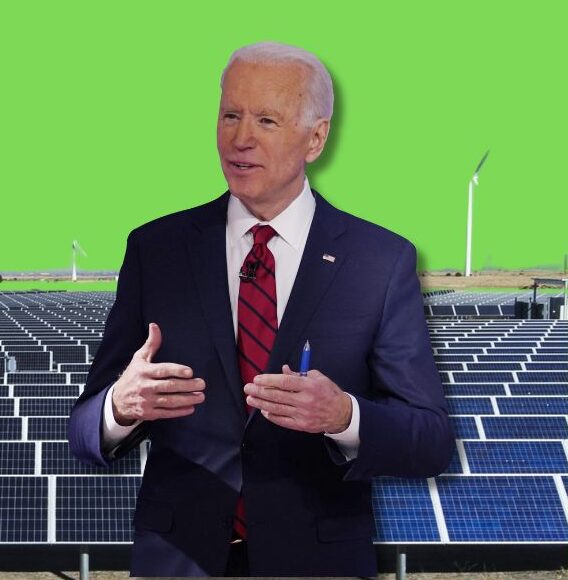Region: National
Joe Biden, Hail and Farewell
His climate actions will resonate far into the future.
Joe Biden is about to vanish from the political scene, but not from the history books. The last election casts a pall on his reputation, as does his unpopularity. But history may be kinder, as it has been for Harry Truman and Jimmy Carter. Beyond all else, he has been our best president yet on climate policy. For our descendants, that will matter a lot more than a couple of years of inflation that impacted their ancestors.
CONTINUE READINGWhat Will 2025 Bring in Global Climate Finance?
Last year, international negotiations continued to disappoint on global climate policy, forests, and finance. This year, subnational governments must continue to lead.
As they have for many years, nations came together in 2024 at various climate-related events to push for a brighter future. From the 16th Conference of the Parties (COP) to the Convention on Biological Diversity in Cali, Colombia in October 2024, followed immediately by COP29 to the United Nations Framework Convention on Climate Change (UNFCCC) …
Continue reading “What Will 2025 Bring in Global Climate Finance?”
CONTINUE READINGTalking Climate Policy with an Energy Economist
An interview with leading energy expert Catherine Wolfram
Catherine Wolfram, a leading energy economist who has researched the impact of the Inflation Reduction Act, shares her views of the impact of the IRA, its likely fate, and the energy policies of the incoming Trump Administration. Wolfram served as the Deputy Assistant Secretary for Climate and Energy Economics at the US Treasury in 2021-2022
CONTINUE READINGHuge Snub for Big Oil at the Supreme Court
Oil companies failed to persuade the justices to shield them from the growing number of state lawsuits seeking damages for the harms caused by climate change.
Big Oil has failed to persuade the U.S. Supreme Court to shield it from numerous state climate lawsuits filed across the country seeking damages for the harms caused by climate change — harms like the historic, supercharged urban fires burning in Los Angeles. The justices held a conference on Friday, January 10 to determine whether …
Continue reading “Huge Snub for Big Oil at the Supreme Court”
CONTINUE READINGDOGE: A Dodgy Path to Deregulation
It’s supposed to be cost-saving, but the savings are trivial on the scale of the federal budget.
Musk and Ramaswami have said that their DOGE project will cut the federal budget by eliminating unnecessary regulations and cutting regulatory agencies. Putting aside what “unnecessary” means here, that’s not even going to be a downpayment on the kind of budget cuts they’re seeking. The numbers are pretty simple. Suppose they eliminated EPA entirely. That …
Continue reading “DOGE: A Dodgy Path to Deregulation”
CONTINUE READINGA Way Forward?
Reducing the Number of Decisions Could Accelerate Fire Management
This is the third of a series of three posts on how to do more to reduce fire risks on federal lands. The first post is here, the second post is here. In addressing the increasing risks of wildfire, we certainly need to scale up the resources we apply to the problem, doing more prescribed …
Continue reading “A Way Forward?”
CONTINUE READINGFire and Permitting Reform
Addressing the difficult parts, regulation and litigation
This is the second of three posts on proposed legislation to address the fire crisis on federal lands (the first post is here). Last post, I talked about why this legislation is essential, and the strengths of the bill that the House passed last Congress. In this post, I’ll talk about the parts of the …
Continue reading “Fire and Permitting Reform”
CONTINUE READINGThe Urgent Need to Address Fire Risk
We need legislative action to accelerate fire risk reduction in general
The Manchin-Barrasso energy permitting bill that I’ve posted about is not the only permitting reform bill that died with the last Congress. The House had passed the “Fix Our Forests Act,” legislation sponsored by Rep. Bruce Westerman, a Republican from Arkansas, with a focus on trying to reduce fire risks on federal (and other) lands. …
Continue reading “The Urgent Need to Address Fire Risk”
CONTINUE READINGGovernment by Reconciliation
The reconciliation process avoids the risk of a Senate filibuster. But it comes wth procedural and political complications.
The GOP’s efforts to accomplish a big agenda through the reconciliation process will face serious complications. The Byrd rule limits the use of reconciliation to achieve non-budgetary purposes. A razor-thin House majority and factional warfare will make it hard to reach deals, as will Trump’s (& Musk;s) distaste for compromise.
CONTINUE READINGA Crisis in Climate Communications
Deadly windstorms, wildfires, and hurricanes constitute something more horrific than just “climate change.”
What’s best for communicating urgency: phrases like “global warming” and “climate change” or “climate crisis” and “climate emergency”? What do audiences take away from these semantic choices? Does it matter what words we use? What about when the entire nation is watching a series of wildfires engulf Los Angeles, fueled by unusually dry vegetation during …
Continue reading “A Crisis in Climate Communications”
CONTINUE READING







